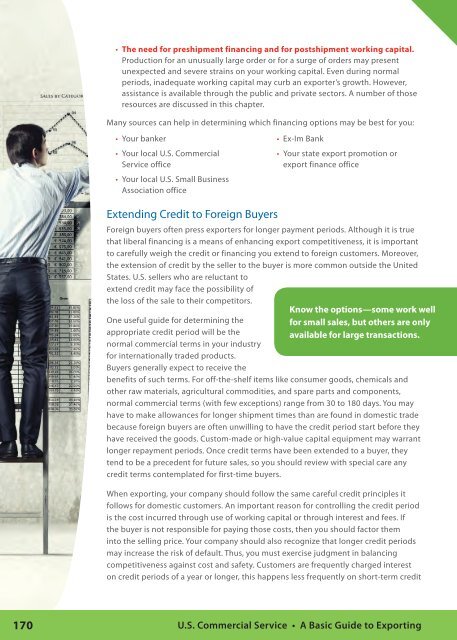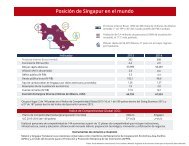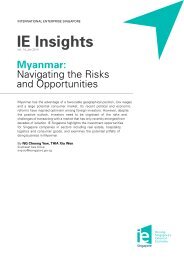basic-guide-to-exporting_Latest_eg_main_086196
basic-guide-to-exporting_Latest_eg_main_086196
basic-guide-to-exporting_Latest_eg_main_086196
Create successful ePaper yourself
Turn your PDF publications into a flip-book with our unique Google optimized e-Paper software.
• The need for preshipment financing and for postshipment working capital.Production for an unusually large order or for a surge of orders may presentunexpected and severe strains on your working capital. Even during normalperiods, inadequate working capital may curb an exporter’s growth. However,assistance is available through the public and private sec<strong>to</strong>rs. A number of thoseresources are discussed in this chapter.Many sources can help in determining which financing options may be best for you:• Your banker• Your local U.S. CommercialService office• Your local U.S. Small BusinessAssociation office• Ex-Im Bank• Your state export promotion orexport finance officeExtending Credit <strong>to</strong> Foreign BuyersForeign buyers often press exporters for longer payment periods. Although it is truethat liberal financing is a means of enhancing export competitiveness, it is important<strong>to</strong> carefully weigh the credit or financing you extend <strong>to</strong> foreign cus<strong>to</strong>mers. Moreover,the extension of credit by the seller <strong>to</strong> the buyer is more common outside the UnitedStates. U.S. sellers who are reluctant <strong>to</strong>extend credit may face the possibility ofthe loss of the sale <strong>to</strong> their competi<strong>to</strong>rs.Know the options—some work wellOne useful <strong>guide</strong> for determining thefor small sales, but others are onlyappropriate credit period will be theavailable for large transactions.normal commercial terms in your industryfor internationally traded products.Buyers generally expect <strong>to</strong> receive thebenefits of such terms. For off-the-shelf items like consumer goods, chemicals andother raw materials, agricultural commodities, and spare parts and components,normal commercial terms (with few exceptions) range from 30 <strong>to</strong> 180 days. You mayhave <strong>to</strong> make allowances for longer shipment times than are found in domestic tradebecause foreign buyers are often unwilling <strong>to</strong> have the credit period start before theyhave received the goods. Cus<strong>to</strong>m-made or high-value capital equipment may warrantlonger repayment periods. Once credit terms have been extended <strong>to</strong> a buyer, theytend <strong>to</strong> be a precedent for future sales, so you should review with special care anycredit terms contemplated for first-time buyers.When <strong>exporting</strong>, your company should follow the same careful credit principles itfollows for domestic cus<strong>to</strong>mers. An important reason for controlling the credit periodis the cost incurred through use of working capital or through interest and fees. Ifthe buyer is not responsible for paying those costs, then you should fac<strong>to</strong>r themin<strong>to</strong> the selling price. Your company should also recognize that longer credit periodsmay increase the risk of default. Thus, you must exercise judgment in balancingcompetitiveness against cost and safety. Cus<strong>to</strong>mers are frequently charged interes<strong>to</strong>n credit periods of a year or longer, this happens less frequently on short-term credit170U.S. Commercial Service • A Basic Guide <strong>to</strong> Exporting





